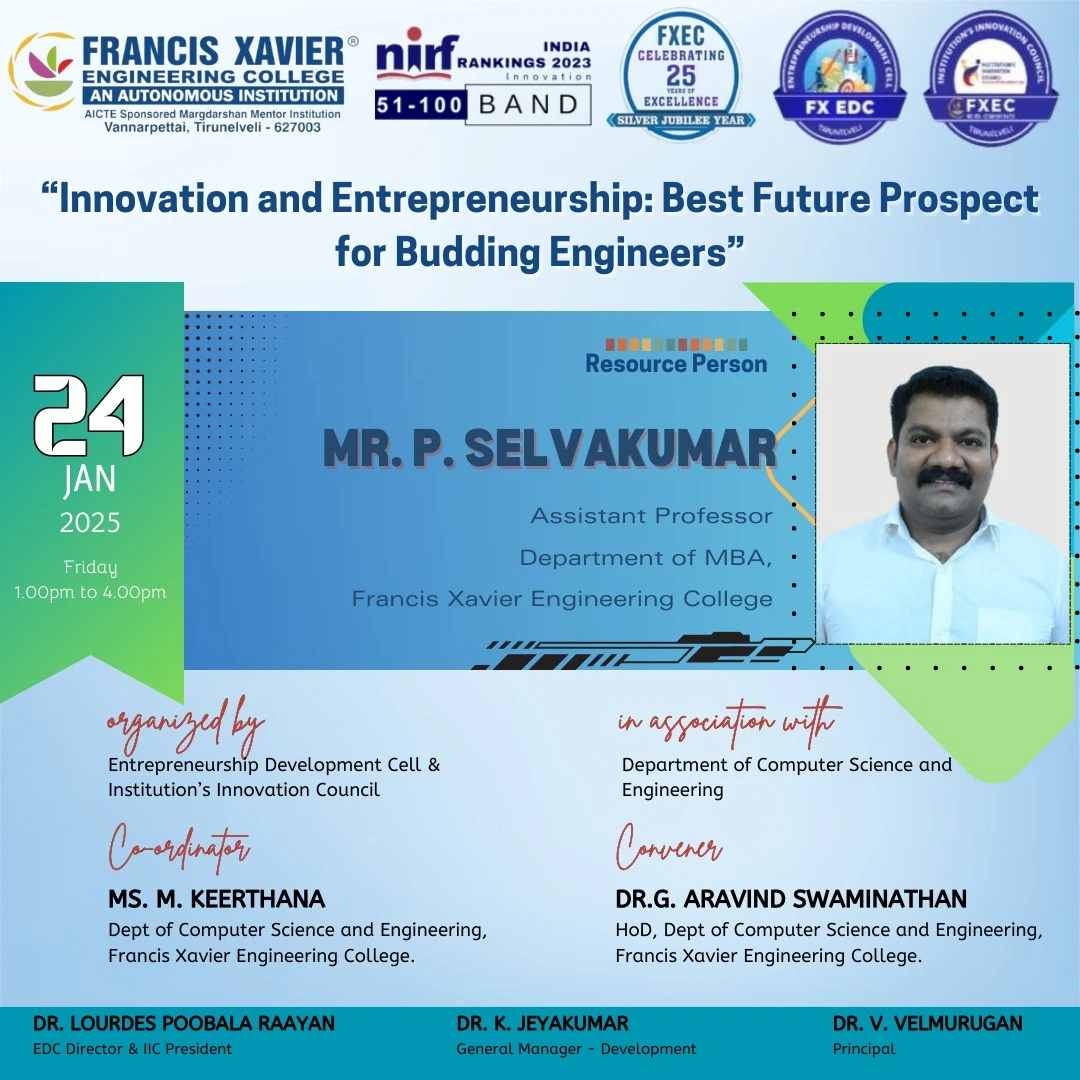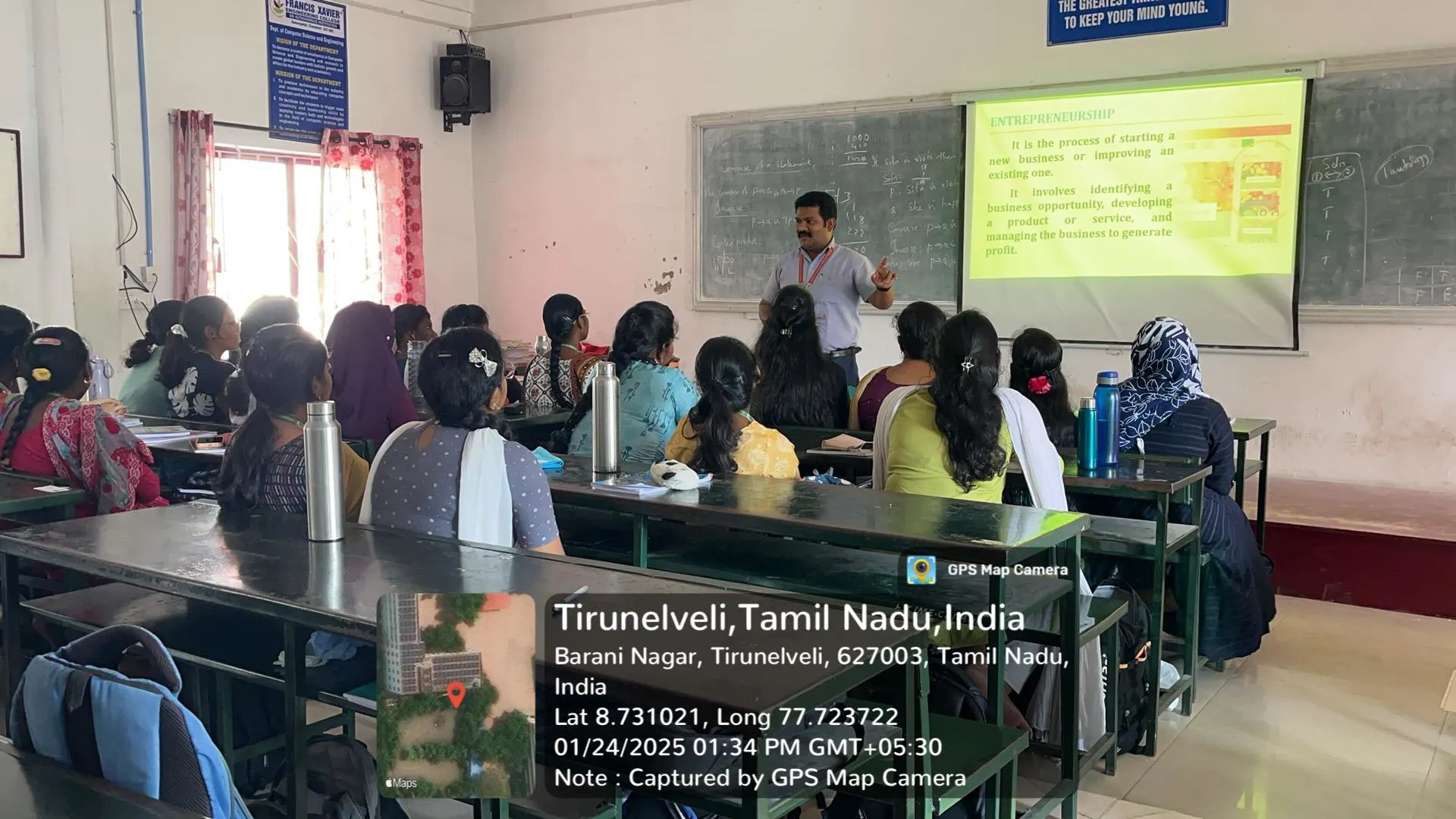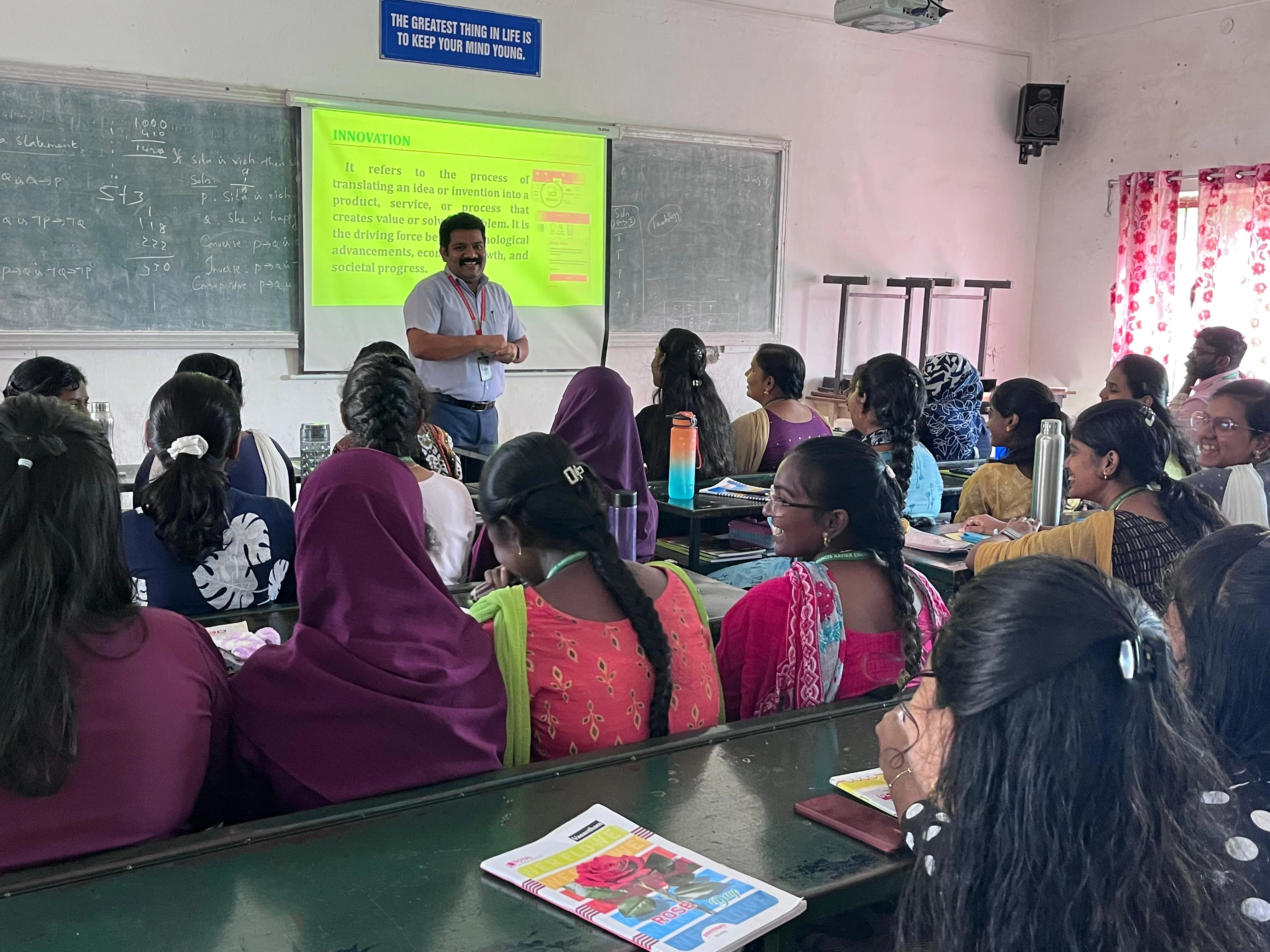
On 24.01.2025 a session on “Innovation and Entrepreneurship: Best Future Prospect for Budding Engineers” was organized by the Entrepreneurship Development Cell and IIC in association with the Department of Computer Science and Engineering. This session was handled by Mr. P. Selvakumar, Assistant Professor, Department of MBA, FXEC. Fifty students from second year CSE C and 1 staff participated in the program. The program was coordinated by Ms. M. Keerthana, Assistant Professor, Department of English, CSE from 1.00PM to 4.00PM.
The program started with the introduction of the guest speaker. The resource person began the session by emphasizing the importance of creativity and problem-solving. He highlighted that the rapidly evolving technological landscape requires engineers to think beyond traditional roles and address real-world challenges through innovative solutions. Students were encouraged to develop critical thinking and adaptability, essential traits for navigating future opportunities.
The speaker shared insights into the entrepreneurial journey, discussing the various stages of launching and managing a startup. Real-life examples of successful engineering ventures were presented, illustrating how engineers can transform ideas into impactful businesses. The resource person also underscored the importance of interdisciplinary collaboration, pointing out that engineers often succeed when they work alongside experts from diverse fields.
The speaker shared helpful advice, encouraging students to use new technologies like artificial intelligence and renewable energy to create sustainable solutions. They also recommended taking part in activities like hackathons, incubators, and innovation labs to gain practical experience. Overall, the seminar inspired students to see innovation and entrepreneurship as great opportunities for personal success and contributing to society, giving them the confidence to succeed in a fast-changing world. Through this program, participants showed keen interest in the concepts, methodologies and gave satisfactory feedback at the end of the session.

